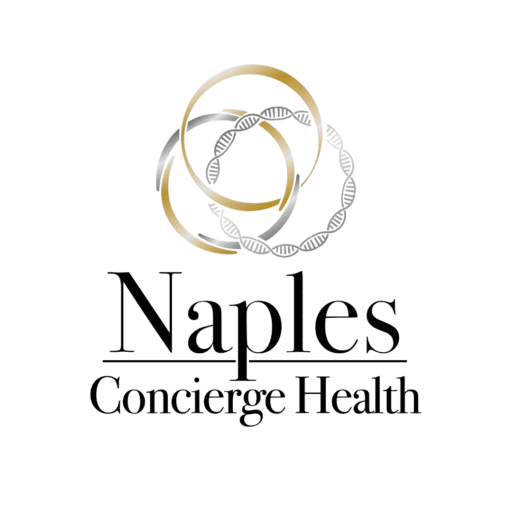The world of modern medicine is truly a thing of wonder. With advanced technology, artificial intelligence, data-driven healthcare, and cutting-edge treatments, the possibilities are seemingly endless.
But despite these new capabilities and advancements, one of the most critical elements of healthcare is compassion.
A doctor or primary care provider’s ability to show empathy, to listen, and to connect with patients is just as important as their medical expertise.
Compassion is more than kindness. It directly impacts communication and healthcare outcomes.
The Healing Power of Compassion
Compassionate care does more than treat symptoms. When a doctor truly listens and understands, it can have a monumental impact on the patient.
Compassionate care can lead to:
Better Communication
When patients feel heard, valued, and understood, they are more likely and more willing to share key information about their health.
Often, patients feel embarrassed or nervous about sharing intimate and personal health information, limiting the doctor’s ability to properly assess, diagnose, and address what is going on.
By establishing trust with patients, healthcare providers can reduce this hesitancy, create better communication and improve patient-provider relationships.
Improved Healthcare Outcomes and Wellbeing
Research has demonstrated that not only does compassion reduce patient anxiety, but it improves patient-self care and adherence to recommended treatment.
The alternative, lack of compassionate care, can result in slower wound healing and higher levels of pain, lower quality care, and increased risk for medical errors.
Being heard and understood leads patients to play a more engaged and active role in their treatments, improving their sense of wellbeing and their overall health outcomes.
Why Compassion Improves Medical Outcomes
Compassionate care leads to significant improvements in medical outcomes. Beyond patient satisfaction and increased trust, you may find:
More Accurate Diagnoses
When patients feel heard, they are more likely to share symptoms and concerns openly. This gives physicians a more accurate picture of the patient’s health, allowing them to more accurately assess, address, diagnose, and treat medical conditions.
Increased Treatment Adherence
Compassionate care helps patients feel more motivated and connected to their treatments.
They will be more likely to follow recommendations like lifestyle adjustments and stick to medication regimens and follow up appointment schedules.
This can potentially help reduce emergency room visits and hospitalizations by better managing chronic and complex conditions.
Reduced Stress and Anxiety
Emotional support from a doctor can go a long way to reducing fear and promoting healing.
Stress can have a negative impact on the body, worsening conditions like high blood pressure and sleep disturbances, among others.
When patients know they are getting quality, compassionate attention from their doctors, they may worry less about their health, feel less shame or guilt, and come forward when something is amiss.
How Physicians Can Cultivate Compassionate Care
Compassion is not a complicated concept; yet it can be absent from many medical practices.
When focusing on patient volumes, medical billing, medication management, and making diagnoses, it is easy for physicians and healthcare providers to switch into a detached demeanor just to stay on time and on task. This is understandable! However, taking a few simple steps can make a huge difference in the care provided and the experience of the patient.
Practice Active Listening
Physicians and providers can begin by giving patients undivided attention.
Maintain eye contact and acknowledge patient concerns. When appropriate, repeat these concerns back to the patient, ensure they know that they have been heard.
This repetition also allows for clarification, if needed, giving the patient an opportunity to correct the physician’s understanding and leading to better health outcomes.
Aim for Empathy over Efficiency
Physicians can demonstrate empathy by taking some time during appointments to reassure patients and explain a diagnosis, recommendation, or prescribed medication. This simple action can reduce patient anxiety and help them see the bigger picture of their healthcare strategy.
When scheduling appointments, factor in this time. This can improve patient engagement and satisfaction.
Provide Personalized Care
Patients are humans and they often come to medical appointments loaded with their own concerns, anxieties, and sometimes, their misconceptions about medical conditions.
Using a warm and reassuring tone is one way to overcome challenges and inject compassion and humanity into the appointment setting.
Each person is unique and they deserve to be treated as such. Always treat the person, not just the condition. Consider lifestyle, emotions, and unique individual needs when delivering medical advice.
Compassion in Action: Naples Concierge Health’s Approach
At Naples Concierge Health, compassion is at the heart of every patient interaction.
We are proud to work with our patients, acting as co-pilots, on their healthcare journey. Our team listens to patient concerns and develops a personalized health plan that addresses the specific and unique needs of each person.
Whether looking for assistance for geriatric patients, ways to maximize performance, support following a health crisis, or more, we have you covered.
Our holistic, patient-centered approach, coupled with our ability to coordinate with a vast network of specialists and diagnostic centers, ensures a humanized, personalized approach to your care.
In a world that is increasingly impersonal, automated, and disconnected, compassionate care can make a real difference.
Taking the time to build trust, listen, and experience a true connection between provider and patient can improve health outcomes and patient engagement.
This not only supports the patient in reaching their individual healthcare goals, but it can reduce ER visits and hospitalizations, relieving the stress on an overburdened healthcare system.
To learn more about Naples Concierge Health or to book a consultation, contact us today!

